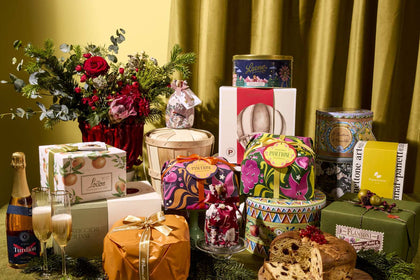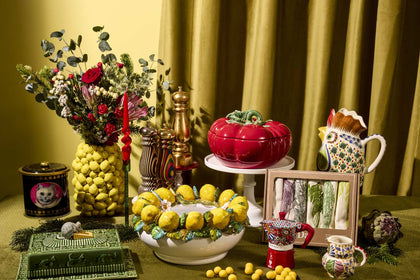Best Non-Toxic Cookware: A Buyer’s Guide
by Jannika Resido

Food safety is of course the essential first step in cooking. But did you know that this extends to the cookware you choose, as well as how you cook different ingredients? Plus, using non-toxic cookware is generally better for the environment.
In this guide, we will talk about non-toxic cookware, shedding light on options that prioritise your health and the environment, in the kitchen. By exploring the best non-toxic cookware, this guide aims to make your experience in the kitchen worry-free and also a conscious choice for a healthier lifestyle.
Why Non-toxic Cookware Matters
Health Concerns with Traditional Cookware:
Traditional cookware can sometimes pose health risks due to the materials used in their construction. Certain metals or coatings may leach into your food, potentially introducing harmful substances. These are commonly referred to as PFOS and PFOA. This guide addresses these concerns, offering insights into the potential health hazards associated with conventional cookware.
Benefits of Choosing Non-toxic Alternatives
Opting for non-toxic cookware comes with a myriad of benefits for your well-being. These alternatives, such as ceramic, stainless steel, or cast iron, eliminate the risk of harmful chemicals leaching into your meals. The guide explores the advantages of using non-toxic cookware, including improved food quality, reduced health risks, and a safer cooking experience.
Best Non-toxic Cookware Options
Explore these carefully curated non-toxic cookware options below. Each has its own unique features and benefits that make them a great replacement, if you are looking to avoid traditional non-stick pans entirely.
Ceramic Cookware

Renowned for its non-toxic composition, ceramic cookware guarantees a safe cooking environment. Experience even heat distribution and a non-stick surface, streamlining your cooking process and ensuring effortless cleanup.
The ceramic material sets it apart with its ability to withstand high temperatures without compromising its non-toxic properties.
Stainless Steel Cookware

Combining unparalleled durability with non-reactive properties, stainless steel cookware emerges as a reliable and long-lasting kitchen companion. Its corrosion resistance not only adds to its non-toxic nature but also ensures a safe and practical cooking experience.
The sleek and modern appearance of stainless steel makes it an aesthetic addition to any kitchen.
Cast Iron Cookware

Boasting natural non-toxic properties, cast iron cookware enhances flavours without the need for added fats. Its simplicity and durability make it a timeless kitchen essential, with the added benefit of even heat distribution over prolonged periods. The seasoning process unique to cast iron contributes to its non-toxicity, offering a rustic charm to your culinary endeavours.
Glass Cookware
Providing a safe and non-reactive surface, glass cookware preserves the integrity of your recipes. The transparency of glass allows for easy monitoring of cooking processes, ensuring a worry-free and health-conscious approach to your culinary creations. Unlike some materials, glass cookware won't leach chemicals into your food, making it an excellent choice for those prioritising non-toxicity.
How to identify safe cookware
When it comes to ensuring the safety of your cookware, your first step is crucial. Prioritise key factors to guarantee the safety of your kitchen essentials. Here's where to begin.
- Decoding Labels and Materials
Opt for cookware labelled under UK food standards. Choose materials like stainless steel, ceramic, or silicone that align with safety guidelines.
- Smart Buying Tips
Look for cookware with clear instructions, traceability labels, and compliance declarations. Ensure it meets substance restrictions and migration limits.
- Safe Cookware Usage
Maintain non-toxic properties by following recommended usage tips. Regularly check for wear, especially in coatings. Keep it simple for a safe cooking experience.
Tips for maintaining the non-toxic properties of cookware
Extend the life of your non-toxic cookware with these straightforward tips:
- Gentle Cleaning: Preserve the non-toxic qualities by avoiding abrasive cleaners that can compromise the surface.
- Avoid High Heat: Prolong the lifespan of your cookware by refraining from exposing it to extreme temperatures, preventing wear and tear.
- Wooden Utensils: Opt for wooden or silicone utensils to prevent scratches, maintaining the non-stick surface and overall safety.
- Hand Washing: While some cookware may be dishwasher-safe, handwashing is gentler, ensuring the longevity of the non-toxic elements.
When looking for durable and efficient cookware, enamelled cast iron cookware offers a fantastic option for those who love the versatility of cast iron without the worry of maintenance.
With its ceramic coating, it provides the benefits of traditional cast iron but with an easier cleanup process and more resistance to scratches. These pans are perfect for oven-safe cooking and can handle high temperatures, making them ideal for roasting, searing, or slow cooking.
If you often serve food straight from oven to table, a long stay cool handle design ensures you can safely move a frying pan from stovetop to oven, to table with ease.
For even heat retention, carbon steel pans are a great alternative. Known for their ability to reach high heat quickly and distribute it evenly, they are well-suited for cooking tasks that require precision, such as scrambled eggs or perfectly browned steaks.
These pans also have a pre-seasoned surface, which improves over time, much like cast iron, but with the advantage of being lighter and easier to handle. For added versatility, consider a stainless steel pan that’s great for everyday use and can handle a wide range of cooking methods.

About the author
Jannika Resido is Sous Chef's online content specialist. She is an expert in southeast Asian food and ingredients! Jannika has several years of experience writing blogs and features for online publications. She loves savoury dishes, trying new ingredients (especially the fruity ones!) and discovering recipes from across the world.


